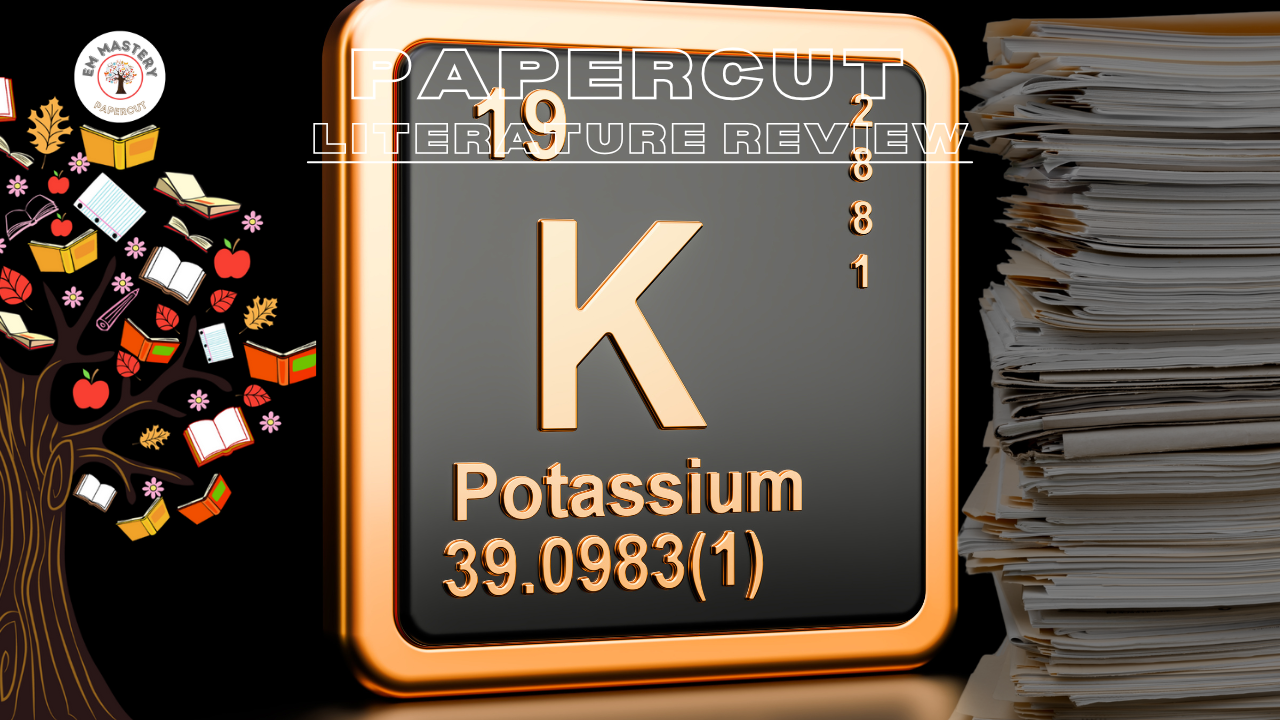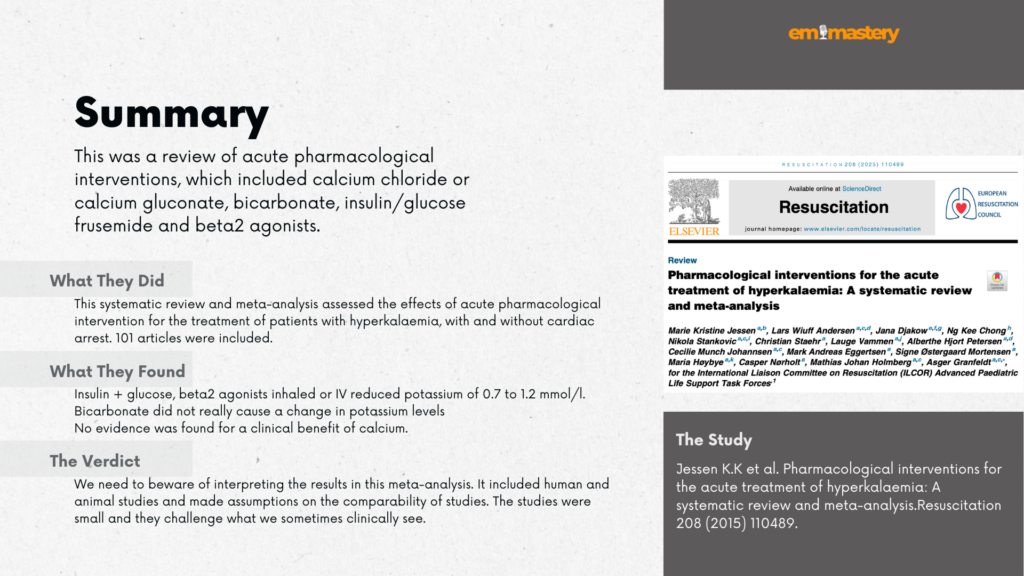Hyperkalaemia is relatively common. Severe hyperkalaemia is generally defined as K >6.5 mmol/L, however in neonates this increases to >7mmol/L.
This systematic review and meta-analysis assessed the effects of acute pharmacological intervention for the treatment of patients with hyperkalaemia, with and without cardiac arrest.
Our accepted approach to treating hyperkalaemia is:
- Calcium to protect against arrhythmias
- Insulin and beta2 agonist for intracellular shift of potassium and
- Diuretics, potassium binders or dialysis for the excretion of potassium.
For patients in cardiac arrest the current approach is calcium, bicarbonate and insulin and glucose.
The Study
Jessen K.K et al. Pharmacological interventions for the acute treatment of hyperkalaemia: A systematic review and meta-analysis.Resuscitation 208 (2015) 110489.
Let’s look at this study more closely….





